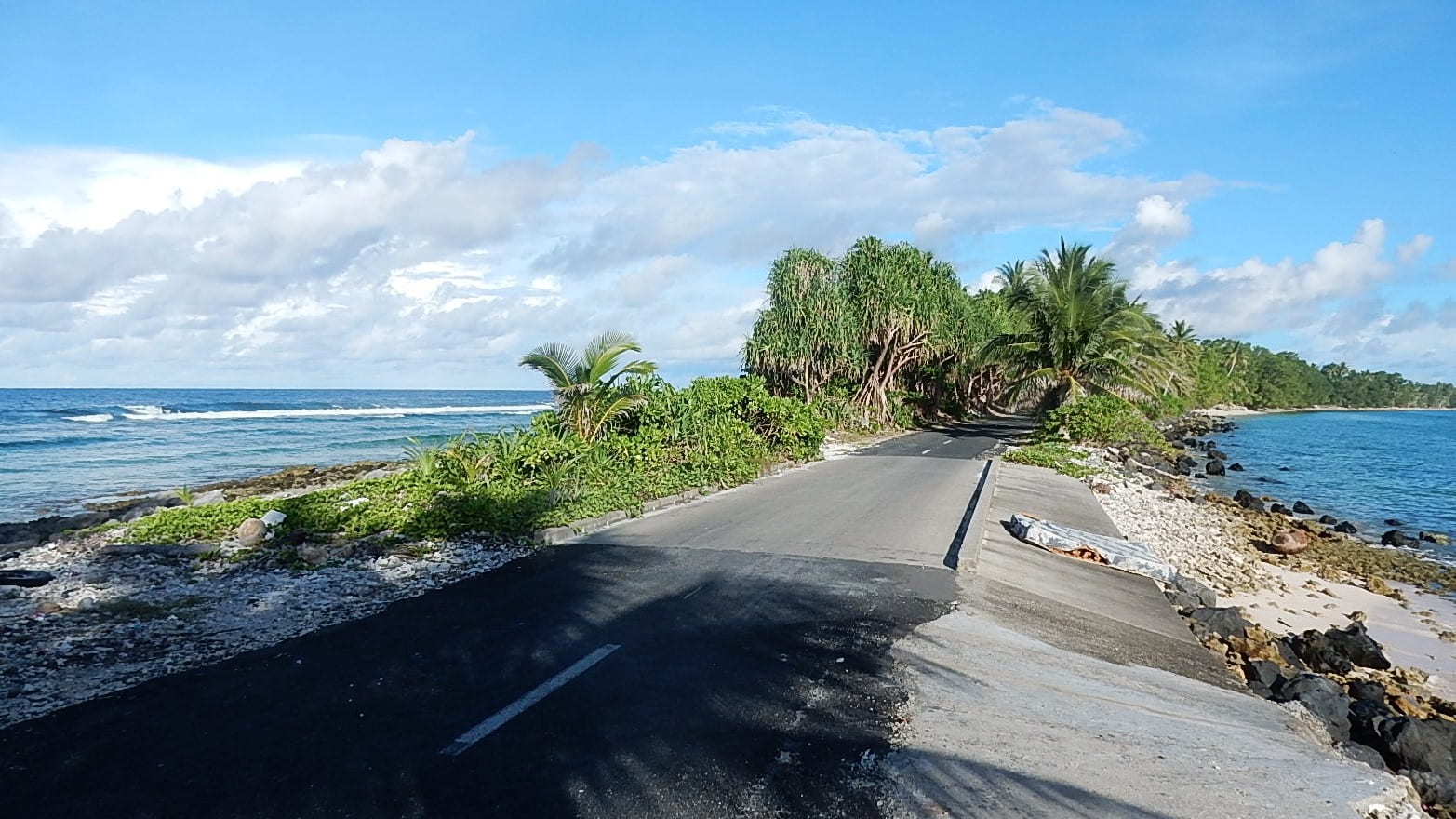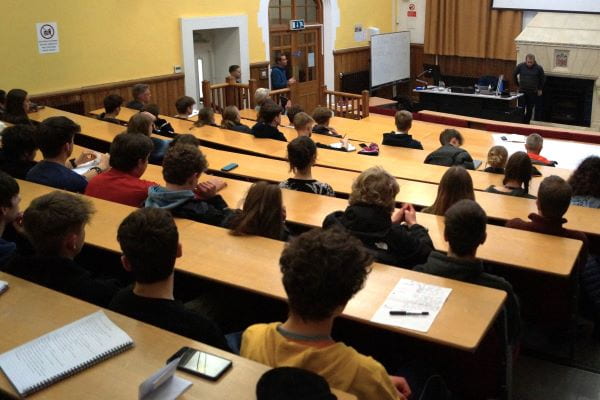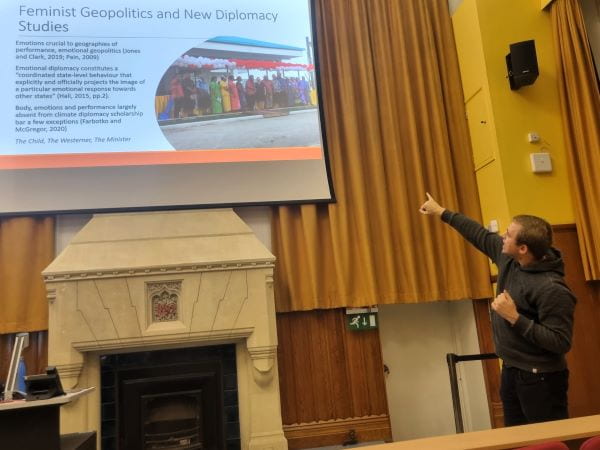Buying space and time: Geopolitics and climate change in the Pacific
Autumn Lecture #3
16th Nov 2023: Beyond ‘Sinking Islands’: Resisting Climate Change in Tuvalu – a talk by Liam Saddington

Over 70 students and teachers attended Autumn Lecture #3 (see slides in Resources) on the 16th of November in the School of Geographical Sciences, University of Bristol. Representation from Bristol schools included QEH, Bristol Cathedral Chor School, Clifton High, North Bristol Post-16, St Mary Redcliffe. It was also great to see a group travel much further from Wells Cathedral Choir School.
The audience were presented with an excellent talk by Dr. Liam Saddington on recent history of geopolitics and the challenges associated with climate change in low-lying islands of the Pacific. A rich narrative was presented, as Liam (1) unpacked the use of the phrase ‘sinking islands’ to provide a more positive and not ‘humiliating’ stance, (2) considered some of the latest adaptation strategies, and (3) revealed some of elements of climate diplomacy in the region. This was accessible material for A-level students, but also provided more challenging content that engaged with higher-level academic reflection.
Liam is a Teaching Associate in the Department of Geography, University of Cambridge, and has been focussing his research on the urgent concerns of Pacific islanders as they face the direct and indirect threats associated with climate change. The talk dealt principally with Tuvalu, but also considered also contrasting strategies of the neighbouring island state of Kiribati (pronounced KIRR-ih-BASS).

The use of the term ‘sinking’ is problematic for low-lying island states in the face of sea level change, because it suggests a disconnect between the problem and the community, hence the addition of ‘beyond’ in the title to promote islander agency. What should the islanders do in the face of climate change? What rules apply when there are no rights for those that might be forced to become ‘climate refugees’? Also, in terms of impact, one must also look beyond the rising sea level, and also consider changing climate patterns, intensity of storms, invasive species and saltwater intrusion.

Tuvaluans can adapt, with support, by building defences, increasing island area, elevating land. By extending the available space, the community can buy time. We have, then, more than one geographical dimension at play, at local to global scales. Some major infrastructure plans have been considered, including the construction of an artificial ‘Falasueti Ecological Island‘ at greater than 10 m above current sea level. Technological solutions need major investment and deals have been struck with China by the government of neighbouring Kiribati. For Tuvalu, Taiwan is a major ally, which brings with it an additional political tension.
Diplomacy is key to future strategies, and the Tuvaluans have a distinct and successful approach to making their pleas on the global stage. During COP26, their Foreign Minister addressed the conference while knee-deep in seawater. By centring the youth and female actors in additional messages and choreographed events, they appeal to the global intimate and climate futures.

By way of postscript, Liam gave the audience a sense of very recent positive changes for the Tuvaluan population. Only a few days before the talk, on the 13th November, the Australian Prime Minister Anthony Albanese declared that “developed nations have a responsibility to provide assistance” to countries like Tuvalu. A Australia-Tuvalu Falepili Union treaty has been signed whereby 280 Tuvaluans per year can migrate to Australia to work, study, or live.
Thanks again to Liam.
For further reading, see the following:
Saddington, L., 2023. The chronopolitics of climate change adaptation: land reclamation in Tuvalu. Territory, Politics and Governance, v. ahead-of-print, p.1-20. doi:10.1080/21622671.2023.2216732.
Saddington, L. and Hills, T., 2023. Geopolitics and humiliation: The ‘sinking islands’ of Tuvalu. Political Geography, v. 105, p.102938. doi:10.1016/j.polgeo.2023.102938.
